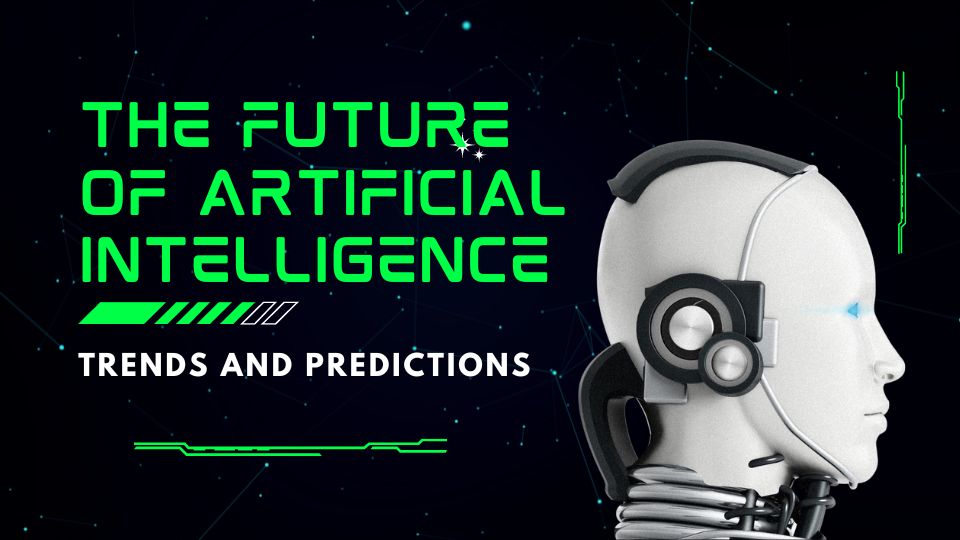
Overview of Artificial Intelligence (AI):
Artificial intelligence (AI) is a branch of computer science that deals with creating intelligent machines that can work and learn like humans. AI technologies enable machines to perform tasks that typically require human intelligence, such as visual perception, speech recognition, decision-making, and natural language processing.
At its core, AI involves creating algorithms that can learn from data, identify patterns, and make decisions based on that information. These algorithms are often based on neural networks, which are designed to mimic the way the human brain works. AI can be divided into two main categories: narrow or weak AI and general or strong AI.
Narrow or weak AI is designed to perform specific tasks or functions, such as facial recognition, speech recognition, or recommendation systems. These systems are trained on a specific dataset and are designed to perform that task very well, but they don’t have the flexibility to adapt to new situations or perform different tasks.
General or strong AI, on the other hand, is designed to perform any intellectual task that a human can do. These systems have the ability to reason, plan, learn, and adapt to new situations, making them more flexible and adaptable than narrow AI. However, developing general AI is still a work in progress, and there is no consensus on how to achieve it.
What is the future of artificial intelligence (AI):
The future of artificial intelligence (AI) is highly promising, as AI technology continues to advance rapidly and its applications expand across various fields. Here are some potential trends and predictions for the future of AI:
- Increased Automation:
Artificial intelligence (AI) is driving automation by enabling machines to perform tasks that previously required human intelligence. AI algorithms are designed to process large amounts of data, learn from it, and make decisions based on the data and rules they have learned. This makes it possible to automate tasks such as data processing, decision-making, and predictive analytics. Additionally, AI is driving automation in robotics, enabling robots to perform more complex tasks with greater precision and accuracy, from manufacturing to logistics. AI-powered chatbots and virtual assistants can automate customer service and support, freeing up human workers to focus on more complex tasks. Overall, AI has the potential to increase efficiency, reduce costs, and free up human workers to focus on more creative and strategic tasks. However, it’s important to ensure that the benefits of automation are shared equitably and that workers are prepared for the changing nature of work that comes with increased automation. - Enhanced Personalization:
AI, or artificial intelligence, has revolutionized the way companies can personalize their offerings for each individual customer. With the help of AI, companies can analyze vast amounts of data on individual customers, including their preferences, behaviors, and purchase history, to create personalized experiences that are tailored specifically to their needs. For example, AI-powered product recommendations can suggest products that a customer is more likely to purchase based on their browsing and purchase history. Chatbots and virtual assistants can engage in natural language conversations with customers and offer personalized recommendations, troubleshoot problems, and answer questions. Moreover, AI-enhanced personalization can help companies optimize their marketing campaigns by targeting specific customer segments with customized content that speaks directly to their interests and preferences. Overall, AI-powered personalization can lead to more satisfied and loyal customers, increased sales, and more efficient use of resources by companies. - Continued development of machine learning: The continued development of machine learning has been a fascinating journey of innovation and progress. Over the years, researchers and engineers have explored various methods and techniques to improve the accuracy and efficiency of machine learning algorithms. From traditional statistical models to modern deep learning frameworks, the evolution of machine learning has led to remarkable advancements in various fields, including computer vision, natural language processing, robotics, and healthcare. With the availability of large datasets and powerful computing resources, the future of machine learning is promising. The integration of machine learning with other emerging technologies such as blockchain, IoT, and edge computing will provide even greater opportunities for the development of intelligent systems that can adapt and learn in real time. The possibilities are endless, and it is exciting to see how the continued development of machine learning will shape our world in the years to come.
- Advancements in robotics:
Over the past few decades, robotics has seen significant advancements in various fields, ranging from manufacturing to healthcare and space exploration. One of the most notable developments in robotics has been the introduction of collaborative robots, also known as cobots, which work alongside humans in factories and warehouses to improve efficiency and productivity. These robots are designed to perform repetitive tasks, freeing up human workers to focus on more complex and creative tasks. Additionally, advancements in artificial intelligence and machine learning have enabled robots to learn from their environments and make decisions in real time. This has led to the development of autonomous robots that can operate without human intervention, such as self-driving cars and drones. With the continued growth of robotics, we can expect to see even more groundbreaking advancements in the near future, including humanoid robots that can mimic human behavior and emotions, and even more advanced forms of AI that can help robots better understand and interact with their surroundings. - Ethical and social considerations: As artificial intelligence (AI) continues to evolve and become more pervasive, it raises important ethical and social considerations. One of the primary ethical concerns is the potential for AI to perpetuate existing biases and discrimination, either through biased data sets or algorithms that reinforce discriminatory practices. Additionally, there is a concern about the potential for AI to replace human workers, which could lead to widespread unemployment and economic inequality. It’s also important to consider the transparency and accountability of AI systems, as well as their potential impact on privacy and security. Finally, the development and deployment of AI should consider its potential impact on society as a whole, and ensure that it is aligned with human values and needs. As such, it’s crucial to approach the development and deployment of AI with a thoughtful and ethical lens and to engage in ongoing discussions and collaborations to address these complex issues.
Benefits and Challenges of Artificial Intelligence (AI):
Artificial Intelligence (AI) has revolutionized many aspects of our lives, from self-driving cars to voice assistants. There are numerous benefits and challenges associated with AI.
Potential benefits of AI:
- Improved efficiency and productivity in industries such as healthcare, finance, and manufacturing
- Enhanced personalization of products and services for consumers
- Advanced automation, such as self-driving cars and drones
- Better decision-making and problem-solving capabilities
- Progress in scientific research and discovery
- Addressing global challenges, such as climate change and disease prevention
Challenges of AI:
- Job displacement due to automation
- Potential for biases in decision-making and perpetuating inequalities
- Privacy and security concerns related to data collection and analysis
- Limited transparency and accountability in AI systems
- Ethical concerns around the development and use of autonomous weapons and other technologies
- Potential for AI to be used for malicious purposes, such as cyber-attacks and deep fakes
The benefits of AI are vast and could have a positive impact on society, but it is important to address the challenges and potential risks as the technology continue to advance.
Conclusion:
In conclusion, Artificial Intelligence (AI) has a significant impact on various areas of our lives, including automation, decision-making, efficiency, and personalization. However, there are also several challenges associated with AI, including bias and discrimination, job loss, ethics, and governance, security, and privacy. To ensure that the benefits of AI are realized while minimizing the risks and challenges, we need to take a thoughtful, ethical approach to its development and deployment. This requires ongoing discussions, collaborations, and regulations to ensure that AI is used in a responsible and transparent manner that aligns with human values and needs. With careful consideration and responsible use, AI can continue to revolutionize our world and enhance our lives in countless ways.







